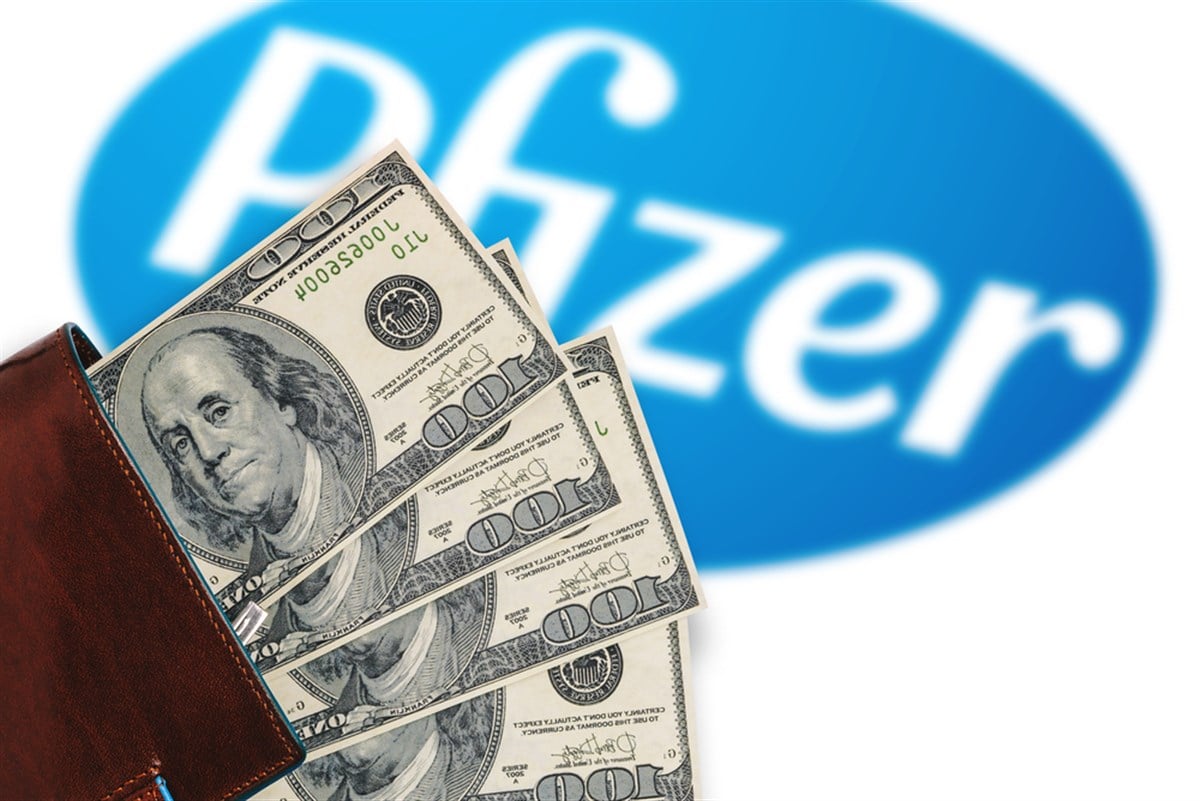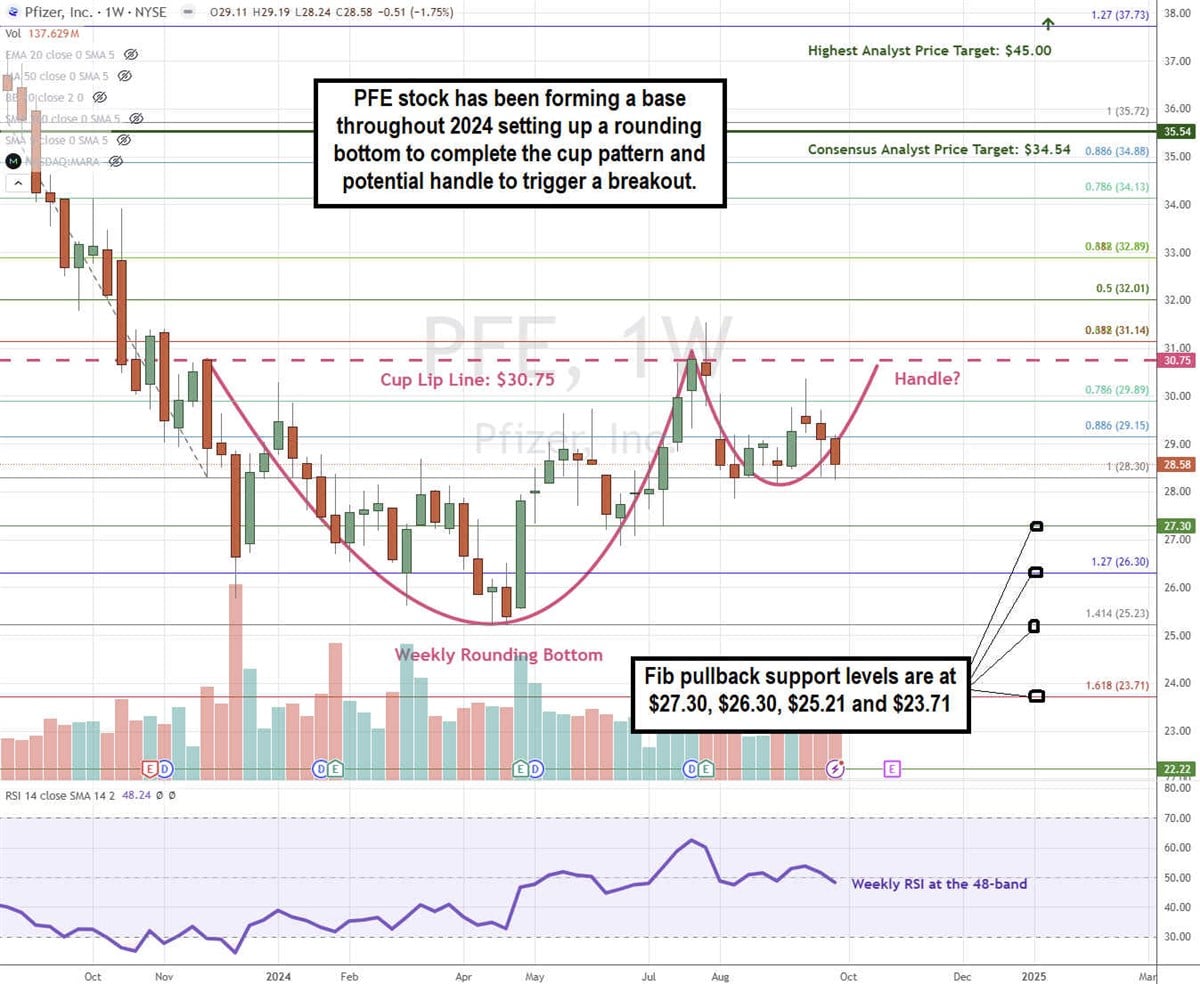
Pfizer Inc. (NYSE: PFE) hit its peak during the COVID-19 pandemic when its vaccines developed with BioNTech SE (NASDAQ: BNTX) sent shares surging up to $61.71 in December 2021, driven by its COVID-19 vaccine sales. Since then, it's been downhill for the medical sector giant as COVID revenues dried up with the pandemic in the rearview mirror. Normalization set in, and investors jumped out. Pfizer’s stock fell 60% to a post-pandemic low of $25.20 in April 2024. Shares have since started to gradually recover as the company appears to be regaining its sea legs as the market also starts to play down its COVID revenue declines. Here are four reasons to consider stepping back into Pfizer stock.
1) Pfizer Reported Revenue Growth for the First Time Since Q4 2022
Pfizer’s COVID-19 product sales continue to plunge, evidenced by Q2 2024 Comirnaty revenue falling 87% YoY to $195 million, down $1.2 billion. Paxlovid revenue rose 79% YoY to $251 million. COVID revenues are expected to continue falling. However, its second quarter of 2024 actually rose for the first time since Q4 2022, growing 2.1% YoY to $13.28 billion, firmly beating consensus estimates of $12.96 billion. When backing out of COVID-19 revenue, the rest of the business grew revenues by 14% YoY. Earnings of 60 cents per share beat consensus estimates by 14 cents in the quarter. Adjusted gross margin improved by 300 bps to 79%. Pfizer also raised its full-year 2024 EPS guidance to $2.45 to $.65, up from previous guidance of $2.15 to $2.35 versus $2.36 consensus estimates.
2) Pfizer Has 113 Drugs in the Pipeline, Including Its GLP-1 Treatment
Pfizer has a robust drug pipeline of 113 candidates, of which six are near the final steps before final regulatory approval. Many of these drugs are part of its robust cancer franchise thanks in part to its $40 billion acquisition of Seagen. Its oncology franchise saw a 27% revenue jump driven by Padcev, Xtandi, Lorbrena, Braftovi, and Mektovi. Year-to-date (YTD) Pfizer has received full FDA approval for tivdak, an antibody-drug conjugate used to treat cervical cancer, which is forecast to generate $2 billion. EMA approval for Talzenna and Xtandi and positive CHMP options on Padcev, Braftovi, and Mektovi were also achieved in 2024. The company will continue forward with Danuglipron, the once-a-day GLP-1 weight loss pill, which the company expects to generate $3 billion.
3) Pfizer Stock Has Fallen Into Value Territory
Pfizer shares trade at just 10.74x forward earnings and provides a 5.88% annual dividend yield. On Oct. 2, 2024, Reuters reported that Pfizer had reduced its stake in consumer healthcare products maker Haleon plc (NYSE: HLN) from 22.6% to 15% by selling $3.26 billion of stock.
Haleon produces oral care products under the Sensodyne, Parodontax, and Polident, as well as vitamins like Centrum and Theraflu and pain relief brands like Advil and TUMS. The transaction will add to its $7.1 billion of cash, bringing its war chest to over $10 billion.
The company still has $3.3 billion authorized in its stock buyback program but hasn't made any purchases in 2024.
4) Pfizer Stock Completes a Weekly Cup With Potential Handle Set-Up
A cup pattern starts with a lip line resistance as the stock falls to a new swing low, forming a rounding bottom, then a rise back to retest the lip line resistance. The pullback forms the handle, which rebounds back up to break the lip line, triggering a cup and handle breakout

PFE formed its weekly cup lip line at $30.75 before sinking to a swing low of $25.23 before forming a rounding bottom and accelerating back up to retest the cup line to complete the cup pattern. PFE fell back down to the $28.80 support level and is starting to form a potential handle, which should retest the cup lip line. If it breaks out through the cup lip line resistance, then a cup and handle formation can trigger above $31.14. The weekly relative strength index (RSI) is flat around the 48-band. Fibonacci (Fib) pullback support levels are at $27.30, $26.30, $25.21 and $23.71.
Pfizer’s average consensus price target is $34.54, and its highest analyst price target is $45.00.
Actionable Options Strategies: Bullish investors looking for a value can use cash-secured puts at the Fib pullback support levels to buy the dip. If assigned the shares, then writing covered call at upside Fib levels executes a wheel strategy for income in addition to the hefty 5.88% annual dividend yield.




